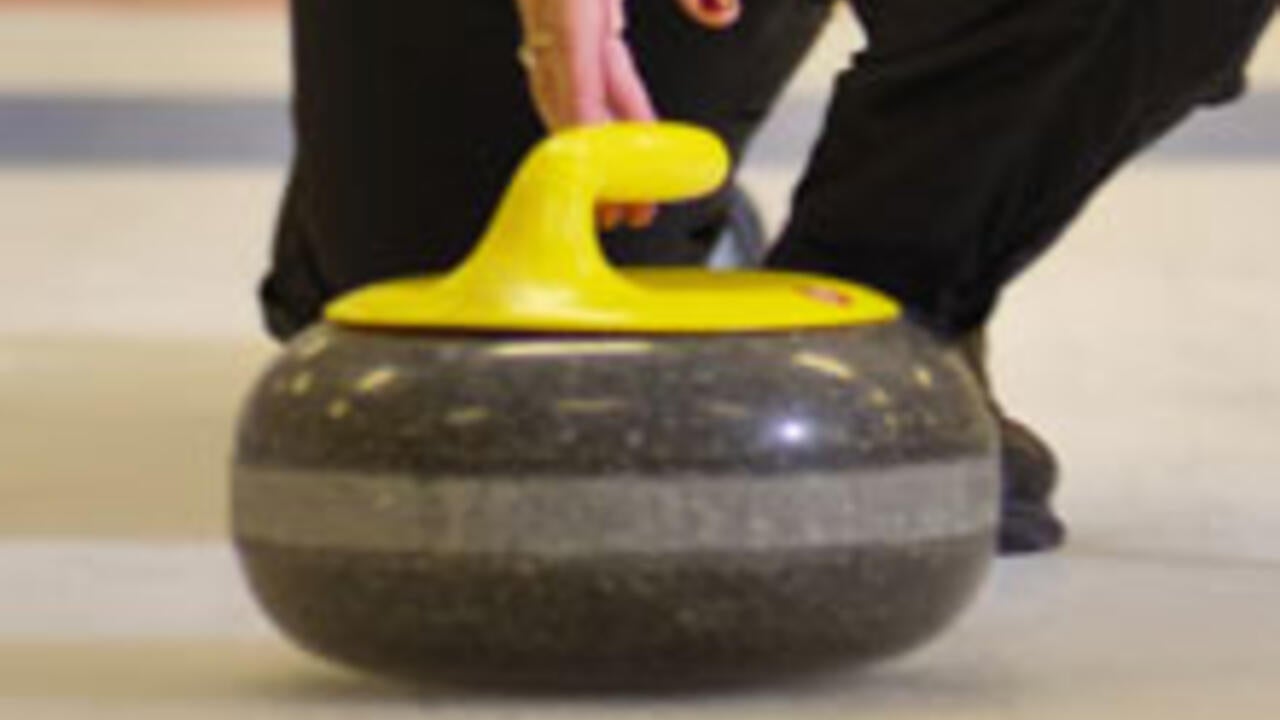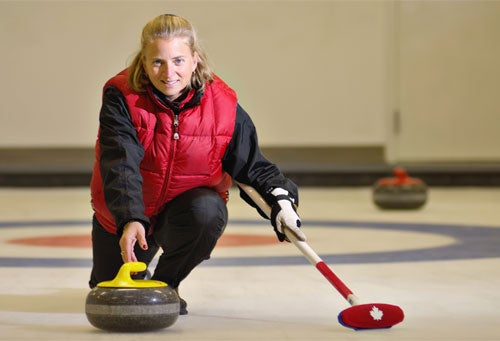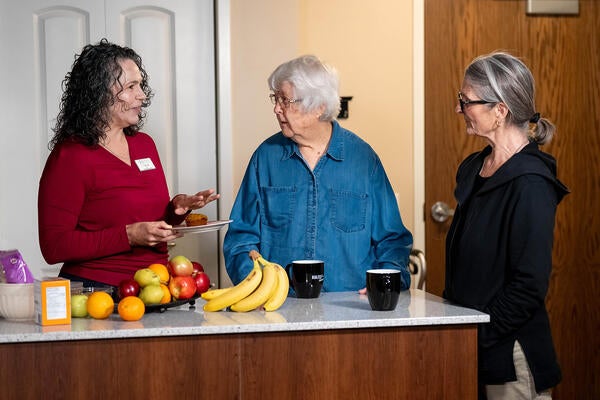
Curling helps fight seasonal depression for rural women
Curling clubs enhance women’s physical, mental and emotional health during long Canadian winters, says Waterloo researcher

Curling clubs enhance women’s physical, mental and emotional health during long Canadian winters, says Waterloo researcher
By Christine Bezruki Faculty of Applied Health SciencesIn rural Canadian towns, curling clubs are more than just a place to play the roaring game.
Curling unites rural women and offers them health benefits beyond the physical, according to Waterloo research. For women in Canada’s most remote communities, the sport can even help stave off seasonal depression.
“Curling clubs are sport places for sure, but they also provide a health service to the community, especially for women,” said Heather Mair, a professor in the Faculty of Applied Health Sciences and a lead investigator on the project.

Each winter, women in rural communities face greater challenges than their city-dwelling peers due to:
But across the country, curling clubs are working to offset the winter blues by bringing women together and giving them a place and reason to connect.
“For rural women, curling becomes a reason to leave the house in the winter,” said Mair. “In many communities, curling clubs are among only a few recreational resources available. It becomes a place where they can talk with other women, seek advice and build friendships, and take leadership roles; increasing both their confidence and resiliency when coping with rural challenges.”
In communities in the Northwest Territories, where darkness can last between 18 and 20 hours a day in the winter months, curling is valued as a way to maintain health and well-being.
“The women we spoke to talked about using curling as a way to stay positive during the darkness,” said Mair. “We found that Northern women are consciously using the sport as a way to reduce or minimize the risk of seasonal depression.”
Rural curling clubs also act as makeshift healthcare organizations, and may reduce the number of unnecessary visits to doctors' offices or hospitals.
“In communities without well-established health services, curling clubs can help to pick up the slack,” said Mair. “They become a place where other members can provide checkpoints on well-being. The clubs become a cushion between people and doctors' offices.
In remote communities the closest hospital can be hundreds of kilometers away.
“Curling clubs aren’t just a place for fun— they are places where women’s physical, mental and emotional health is enhanced,” said Mair. “We need to find a way to convey that so that these places are better supported and continue to thrive from coast to coast.”

Read more
Dr. Heather Keller discusses the need to transform mealtimes in Canada’s long-term care homes from a service to a meaningful form of care

Read more
How machine learning empowers collaboration between computer science, math and medical research

Read more
“I’m just like you.”
The University of Waterloo acknowledges that much of our work takes place on the traditional territory of the Neutral, Anishinaabeg, and Haudenosaunee peoples. Our main campus is situated on the Haldimand Tract, the land granted to the Six Nations that includes six miles on each side of the Grand River. Our active work toward reconciliation takes place across our campuses through research, learning, teaching, and community building, and is co-ordinated within the Office of Indigenous Relations.